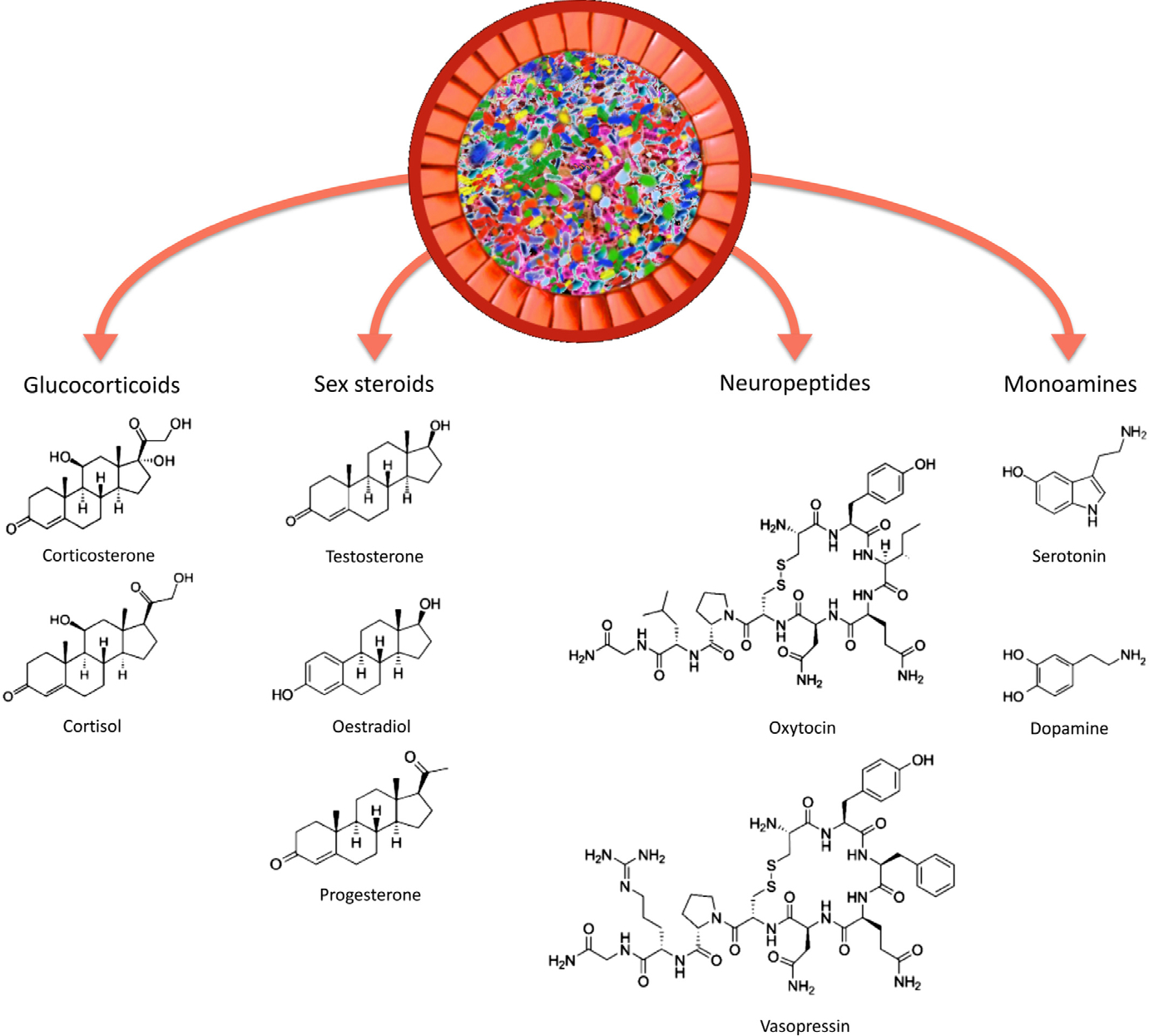Fig. 5.

Microbial regulation of social signalling molecules. Gut microbes regulate the biosynthesis of a range of molecules that mediate social behaviour, including glucocorticoids such as corticosterone and cortisol, androgens such as testosterone, oestrogens such as oestradiol, progestogens such as progesterone, monoamines such as serotonin and dopamine, and neuropeptides such as oxytocin and arginine vasopressin. In addition to producing some of these molecules directly, gut microbes also alter their concentrations and bioavailability via interactions with host tissue, or by secreting enzymes that deconjugate signalling molecules into their active forms. There is evidence that gut bacteria can causally affect these signalling pathways. In addition, these signalling molecules may in turn influence the microbial communities of the gut, either directly, by affecting other functions (such as host immunity), as substrates used in microbial metabolism, or via microbial effects on host social behaviour which may influence the probability of socially transmitted microbes entering the gut. In the case of progestogens such as progesterone and monoamines such as serotonin, there is experimental evidence that these molecules can influence microbial populations directly.
